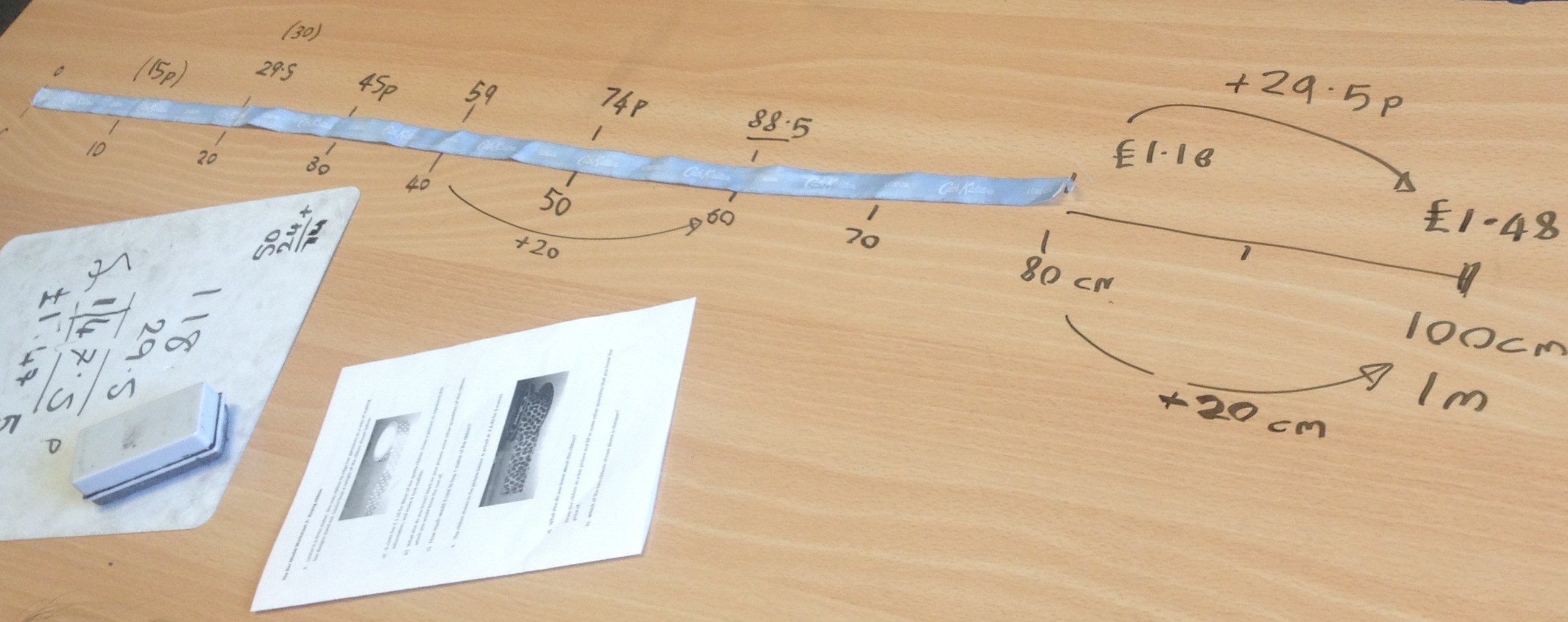NCP19-18 - Wolverhampton - Bar Modelling & Multiplicative Reasoning (Year 5-8) - Day 3 - Online workshop - 10/6/20 - 1300 to 1545
Alternative arrangements now an online workshop - details sent via email
Teachers from different phases will work together to improve communication between Key Stages 2 & 3. Participants will develop understanding of Bar Modelling and pedagogical approaches to Multiplicative Reasoning for their work and develop a consistent approach to it through discussion, joint lesson design and delivery, observation and the development of documentation to support continuity.
Significant areas of the KS2 and 3 maths curriculum, including many areas children find difficult are connected through multiplicative relationships, though it is rarely made explicit in teaching. The project aims to explore the transformative potential of teaching and learning that makes these links explicit, enabling teachers and pupils to make connections and deepen understanding, including through use of Bar Modelling. Teachers will work together with specifically designed CPD and KS2 & KS3 classroom materials to bring research on the effective learning in these areas of mathematics into teachers' classroom practice.

Who will be leading the group?
Graham Charles
Graham is an NCETM PD accredited lead and is the strategic leader for Salop, Herefordshire and Wolverhampton (SHaW) Maths Hub. He has been working collaboratively with KS2 and KS3 Multiplicative Reasoning project leaders nationally to develop this transition project.
Who is it for?
KS2 (especially teachers of Year 5 and Year 6) and KS3 teachers.
All participants will work collaboratively to achieve consistent approaches in cross-phase transition. Encouraging link Primary/Secondary School to register a delegate to support collaborative development of coherent learning approaches in transition to support pupils' progression is desirable.
Please get in touch with the Maths team from your local Primary or Secondary schools to see if they are interested in working collaboratively for this work group.
What are the intended outcomes?
- Improved progress for pupils, particularly in cross-phase transition.
- Increased confidence, resilience and enjoyment for in learning mathematics.
- Improved pedagogical and subject knowledge for teachers.
- Develop curriculum resources and activities.
This Work Group meets all 8 EEF Recommendations: https://educationendowmentfoundation.org.uk/tools/guidance

What will it involve?
Participation in three one-day workshops and completion of gap tasks between workshops.
Workshop 1 activites focus on progression in the use of representations from bar models to double number lines and ratio tables to make connected sense of problems. Participants will trial these activities with their own classes as gap tasks.
Workshop 2 starts with professional learning through collaborative reflection of gap task activities. Exploration of research lessons to deepen understanding of fractions is the main activity before planning the gap tasks.
Workshop 3 begins with collaborative reflection of deepenng the understanding of fractions gap tasks. Further exploration of links to proportional reasoning and use of bar models to solve more complex problems support connected understanding for teachers. Participants will be well placed to share this progessional development with colleagues using the research lessons provided.
- All of the research activities used have been trialled and refined by Maths Education researchers from The University of Nottingham, King's College, London and Manchester Metropolitan University.
- All activities incorporate solving and reasoning.
- Primary and secondary participants have provided positive evaluation feedback to share how participation in this work group has transformed their teaching to help pupils to prepare more effectively for the 'new' SATs and GCSEs - as much as 80% of the content of GCSE papers is underpinned by multiplicative structures.
- Helping pupils to see multiplicative structures in a connected way, and not as unconnected discrete topics, helps to deepen understanding and build resilience.
Participation in this work group has the potential to meet all 8 recommendations from EEFs Improving Mathematics in Key Stages Two and Three report.
What is the cost?
Free
Cover costs of up to £200 per day will be paid for teachers in their first two years of teaching. Please indicate where requested on the booking form.
Book
